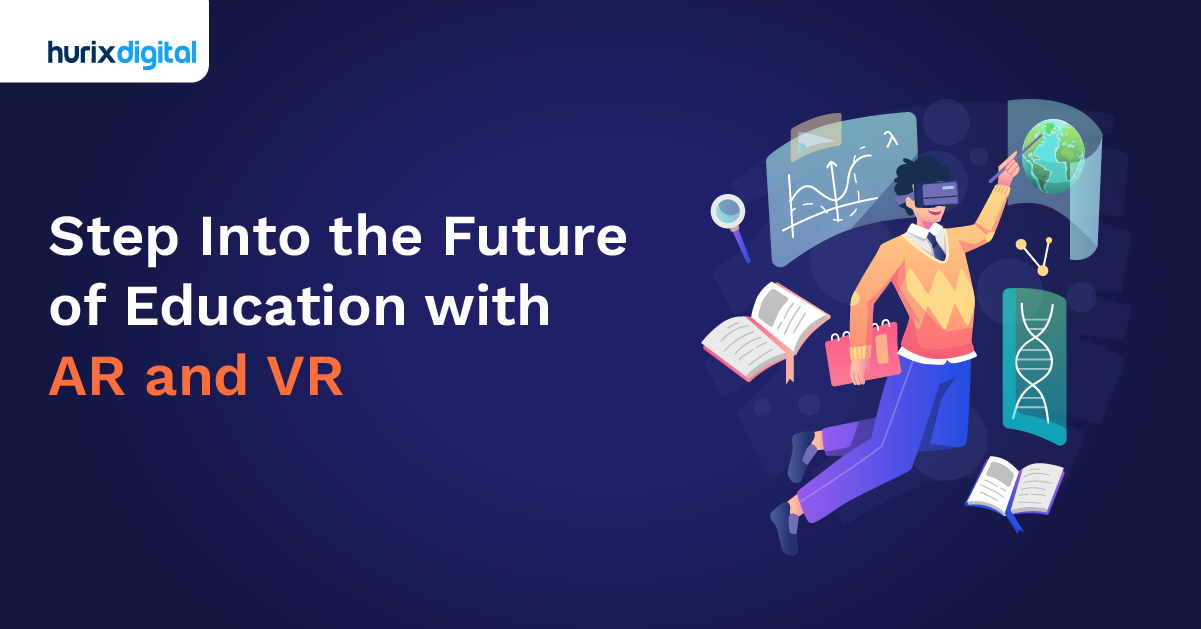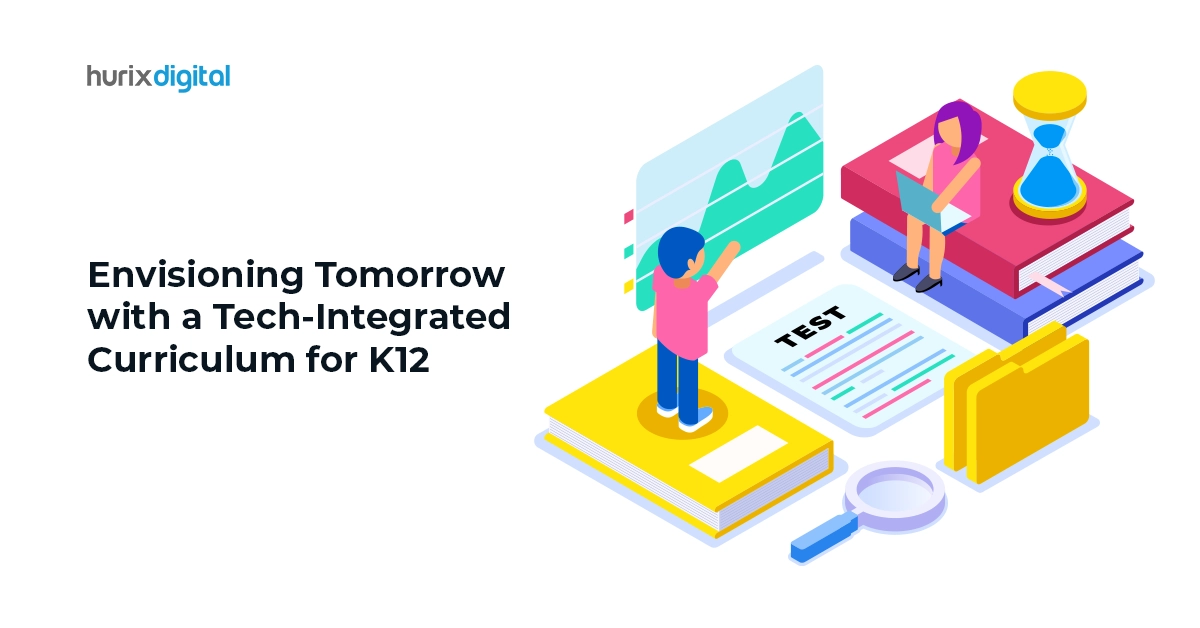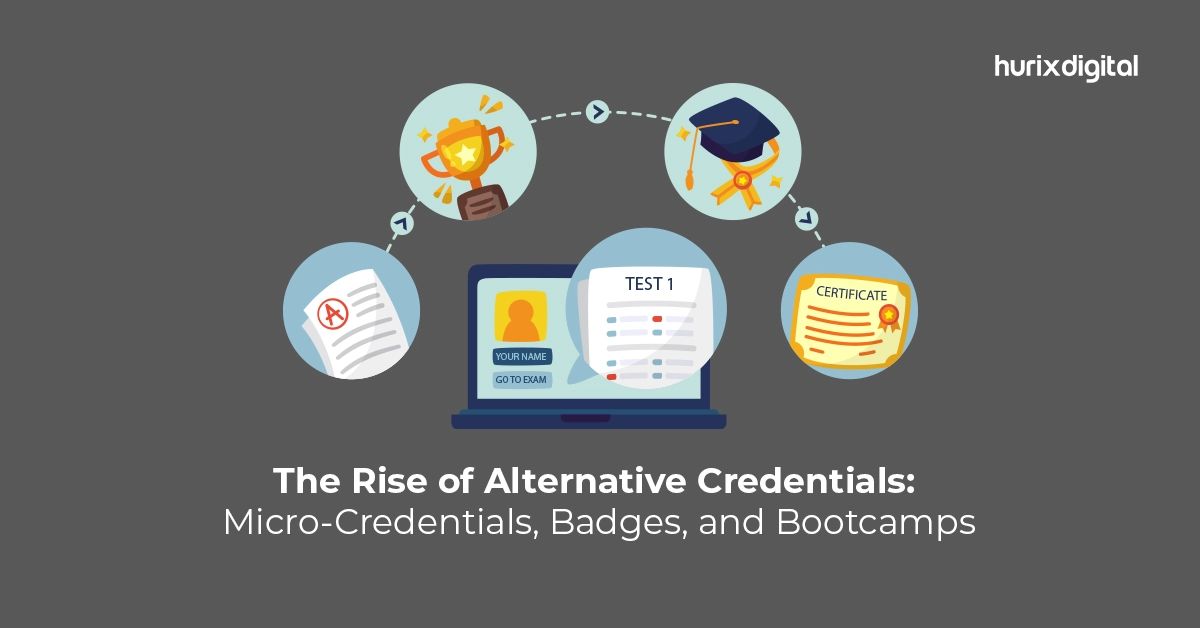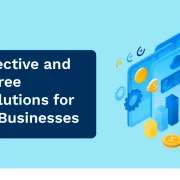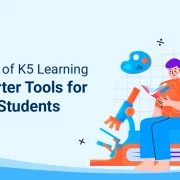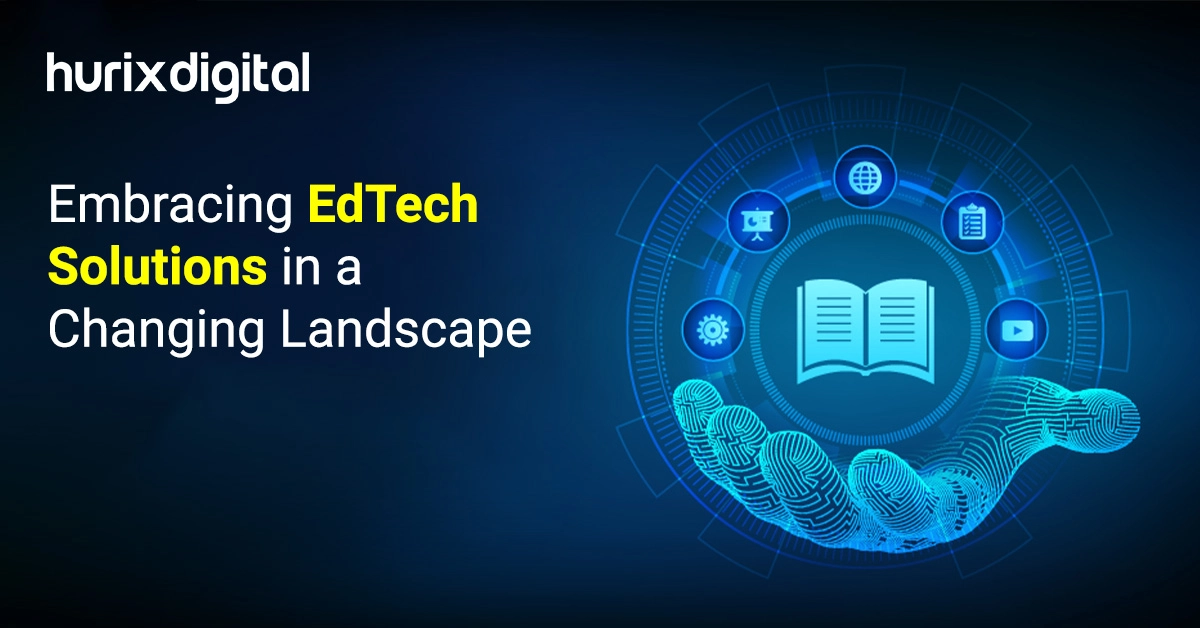
Embracing EdTech Solutions in a Changing Landscape
Summary
Exploring EdTech’s transformation of education through personalized, engaging technologies, this blog addresses implementation challenges and future trends like AI, VR, and blockchain.
EdTech solutions are at the forefront of transformative change within the educational sector. Schools and universities around the globe have realized the importance of incorporating these digital tools into educative systems for enriched learning experiences.
According to McKinsey, out of 800 students and 600 faculty members, 67% said they currently use classroom learning tools. It responded to a rising interest in remote learning solutions and blended learning strategies, paving a path toward exploring advanced adaptive learning technologies.
As we delve deeper, this discussion will explore how edTech implementation is reshaping the educational landscape, ensuring readiness for future challenges.
Table of Contents:
- The Evolution of EdTech Solutions
- Key EdTech Tools Transforming Education
- Challenges and Solutions in EdTech Implementation
- Future Trends in EdTech
- Conclusion
The Evolution of EdTech Solutions
The journey for edTech solutions can be traced back to the use of personal computers within classrooms back in the late 20th century. This very first initiative then led to the vast array of digital learning tools that infiltrated educational institutions across the world.
The real game-changer happened in the 2000s with the advent of online learning platforms, Blackboard and Moodle, which redefined content delivery and consumption at academic institutions.
As technologies improved over the years, edTech products began to be enhanced. During the last 10 years, innovations in modern classrooms have increased, and interactive whiteboards and tablet computing are becoming more of a standard.
Microsoft estimates that technology can enable teachers to redirect 20% to 30% of their time toward more student-focused activities.
Besides, remote learning solutions have become entirely adopted lately during the pandemic, and blended learning strategies have been called the norm rather than the exception.
This time has shown the world how indispensable edTech is in securing continued education. Today, edTech implementation is not about adding technology but creating personalized and adaptive learning experiences for students with diverse needs.
Also Read: Holistic Approaches to a Student-Centered Approach and Equity in Higher Education
Key EdTech Tools Transforming Education
As education adapts to more digital-first approaches, certain technologies have emerged as frontrunners in revolutionizing learning environments. These tools enhance teaching and learning experiences and ensure that education is more accessible and adaptable to everyone’s needs. Here are some of the key technologies driving this transformation:
1. Digital Learning Tools
Digital learning tools have redefined traditional classroom settings, introducing interactive elements that engage students in new ways. These tools include educational apps, virtual simulations, and interactive quizzes that make learning dynamic and more accessible. By incorporating gamification and real-time feedback, these tools help maintain student interest and improve understanding.
2. Online Education Platforms
Online education platforms are pivotal in extending educational outreach beyond traditional classrooms. They connect learners from all over the world to an extensive collection of courses and resources offered by leading educational institutions.
These platforms are essential for lifelong learning and continuous professional development, making education more flexible and inclusive. According to Admissionsly, since 2020, 98% of universities have facilitated online classes. 75% of schools have purchased or are preparing to purchase additional student technology.
3. Modern Classroom Devices
Modern classroom devices such as smartboards, digital projectors, and tablets can be easily integrated into teaching curriculums to encourage collaborative learning. In this way, interactive lessons and digital workflows cater to the needs of auditory, kinesthetic, and visual learners. This approach extends student involvement and enhances the completeness of the learning experience.
4. Remote Learning Solutions
Global shifts towards online education have accelerated the adoption of remote learning solutions. Tools like video conferencing software, online assessment platforms, and cloud-based educational tools ensure that learning is uninterrupted, regardless of location. These solutions are vital for supporting continuous learning during unforeseen disruptions and provide flexibility in how and when students learn.
5. Blended Learning Strategies
Blended learning strategies combine digital educational content and interactive online sessions with conventional in-person classroom approaches. This way, they offer a more balanced approach that can accommodate individual learning preference needs and vary the pace of learning according to each student’s capability. This enhances the overall effectiveness of education programs.
6. Adaptive Learning Technology
Adaptive learning technology renders educational content and pacing responsive to individual students’ abilities by being dependent on their learning progress and skills. The tools utilize real-time response algorithms and adapt to task difficulty, leading to a personalized learning experience that increases understanding and retention.
According to Georgia State University, adaptive learning courseware helped students answer, on average, 4% more of the questions they missed earlier on the pre-TUCE exam.
Challenges and Solutions in EdTech Implementation
Implementing edTech solutions in educational institutions often presents several challenges, but with the appropriate strategies, these can be effectively managed and overcome. Below are some common hurdles and practical approaches to facilitate successful edTech adoption.
1. Resistance to Change
Many educators and institutions may resist adopting new technologies due to comfort with traditional methods or skepticism about the effectiveness of new tools.
Solution: Providing comprehensive training and demonstrating the tangible benefits of edTech can help ease this resistance. Success stories and case studies from similar institutions can also inspire confidence and encourage adoption.
2. Infrastructure Limitations
A failure in the deployment of digital learning tools and online education platforms. This might also be because of poor infrastructure, which includes inadequate internet bandwidth and outdated hardware.
Solution: Institutions must continue working on infrastructure improvement. This can be made possible by providing the necessary grants and general funding, which can come from government sources or the private sector. Additionally, selecting edTech solutions that are adaptable to varying infrastructural conditions can mitigate this issue.
3. Data Privacy and Security
The concern about data privacy and security is rising with the growing utilization of modern classroom technology and remote learning solutions.
Solution: Sensitive information could be protected by deploying robust cybersecurity measures and adhering to international data protection standards. Educate all users on best practices related to data security.
4. Technical Support and Maintenance
Continuous technical issues and the need for regular maintenance of edTech platforms can be significant barriers.
Solution: Establishing a dedicated technical support team within the institution can ensure prompt troubleshooting and maintenance. Partnering with edTech providers that offer reliable customer support is also beneficial.
5. Ensuring Equitable Access
Ensuring that all students have equal access to edTech remains a challenge, especially those from disadvantaged backgrounds or remote areas.
Solution: Programs providing devices and subsidized internet access to all underprivileged students can help with equal sharing and digital inclusion. Similarly, flexible learning opportunities are opened for all with hybrid models and blended learning strategies.
Future Trends in EdTech
Some new trends are designed to influence teaching and learning paradigms and redefine the future of educational technology. Here are key innovations that will shape edTech:
1. AI-Driven Personalized Learning
Artificial intelligence is on the edge of redesigning the educational experience. AI technologies make education personalized, with dynamic content and pace that suit individual needs. They also make education broader in terms of inclusivity and access.
2. Increased Integration of VR/AR Technologies
Virtual Reality (VR) and Augmented Reality (AR) are set to revolutionize edTech by providing immersive learning experiences. These tools allow students to interact in a challenging and attractive environment, from virtual field trips to complex scientific simulations. Such tools can make abstract ideas come to life, making studies more vivid and compelling.
3. Growth of Blockchain in Education
Blockchain technology is beginning to play a role in edTech by providing secure and transparent educational transactions, credentialing, and record-keeping. It ensures the safe and permanent storage of academic credentials. Thus making it a technology that would make it easier for credits to be transferred across different countries.
4. Expansion of Adaptive Learning Platforms
Adaptive learning technology will increasingly evolve into more sophisticated forms with deeper integration of AI. These learning platforms will lean more toward using data analytics to fine-tune the models for learning and, in turn, provide insights that educators can use in further customizing their teaching strategies.
Also Read: Top Benefits of Using AI for Predictive Analytics in Education
Conclusion
Throughout this blog, we have highlighted how edTech solutions are pivotal in transforming the educational landscape. From digital learning tools to adaptive learning technologies, these innovations are essential for enhancing educational outcomes.
Online education platforms and modern classroom technology have been shown to significantly improve accessibility and engagement. This helps prepare students for future challenges in the digital world. As education continues to evolve, the integration of these technologies remains crucial.
Ready to leverage cutting-edge EdTech solutions for your institution? Consider Hurix Digital to meet your educational goals efficiently with top-notch technological solutions and online instructional platforms.
Connect with us today to discover how your educational strategies can be transformed!

Senior Vice President
A Business Development professional with >20 years of experience with strong capability to sell new solutions and develop new markets from scratch. New Market Entry Specialist with experience of working in two of the largest emerging markets – China & India. Also covered other key markets in APAC, US, EU & ME. Exceptional experience of conceptualizing, ideating and selling new learning technologies like VR AR, etc. across multiple industry verticals.
